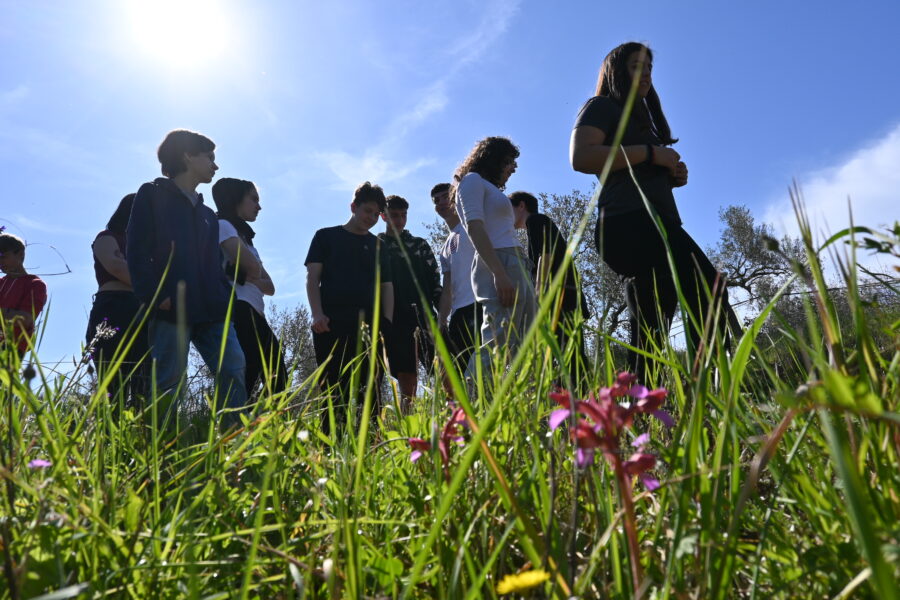
Field Notes Blog: Agroecology Education in Practice
This blog shares stories from our hands-on agroecology workshops. It explores the intersection of agriculture, environment, and community through personal experiences.
Educational Activities Calendar 2025
Ongoing Programs – Educational Offering for Students
Educational Offering for Teachers – Materials / Resources
Education is a vital aspect of the agroecological transition. In order for a true agroecological transformation to take root, we must also cultivate a shift in knowledge systems, values, and cultural narratives towards a culture of regeneration. Regeneration, not only as the restoration of what has been degraded, but the co-creation of thriving nature-culture ecosystems. Ecosystems where human and more-than-human communities shape each other in an ongoing, reciprocal process to flourish together.
In Navdanya International’s commitment to long-term transformation, where food, health, biodiversity and local community are seen as potential sites of care, collaboration, and interbeing, we have developed a broad and multifaceted initiative aimed at cultivating the ecological consciousness needed to imagine and enact regenerative futures.
The Ecoculturae Program
Through land-based, place-based learning, cross-generational knowledge sharing, and participatory education, Ecoculturae cultivates a new generation of eco-conscious citizens, practitioners, and advocates who shape regenerative landscapes and food systems from the ground up. This initiative encompasses various actions, including promoting awareness and activating participatory processes, with the goal of fostering the reconnection of individuals with their territories and developing practical skills to strengthen the ecological resilience of communities.
Ecoculturae by centering land-based learning, participatory education, and agroecological principles, is much more than just an educational program. Ecoculturae is an independent educational initiative that fosters a transformative relationship between people, land, and food. It nurtures ecologically literate communities that are capable of regenerating their environments, resisting extractive systems, and co-creating sustainable futures.
Through immersive education, storytelling, and experiential learning, Ecoculturae is focused on ecological education that is not just abstract but an immersive, hands-on, and relational experience. By actively engaging with the land, participants gain a deep respect for nature’s complexity and the resilience of agroecological systems. This serves to shape the enabling environment for regenerative transitions by fostering eco-literacy, deep ecological consciousness, and community empowerment.
Ecoculturae ensures that individuals and communities not only adopt sustainable practices but also embody a new paradigm of ecological stewardship, one that is relational, place-based, and rooted in justice.
What is our education philosophy?
- Our Ecological Education Program is rooted in a philosophy of experiential, place-based learning, fostering an embodied connection with local ecosystems, food systems, and sustainable practices.
- By actively engaging with the land, participants gain a deep respect for nature’s complexity and the resilience of agroecological systems, recognizing their personal and collective roles in environmental stewardship.
- We believe in learning by doing, as well as through cross-generational knowledge exchange, empowering youth as custodians of ecological knowledge and active agents of change within their communities.
Mission
To inspire and equip the next generation with the skills, knowledge, and ecological literacy needed to advocate for sustainable, just, and resilient food systems. We aim to foster a profound connection to local landscapes, promote ecological awareness, and nurture active citizenship by integrating agricultural practices with educational experiences grounded in agroecology, biodiversity, and community-driven ecological resilience.
Vision
Our vision is a society where individuals are deeply connected to their local ecosystems, act as stewards of biodiversity, and are equipped with the knowledge and commitment to advance sustainable, regenerative food systems. Through participatory education, we envision a generation of ecologically literate youth contributing to food sovereignty, climate resilience, and the well-being of their communities.
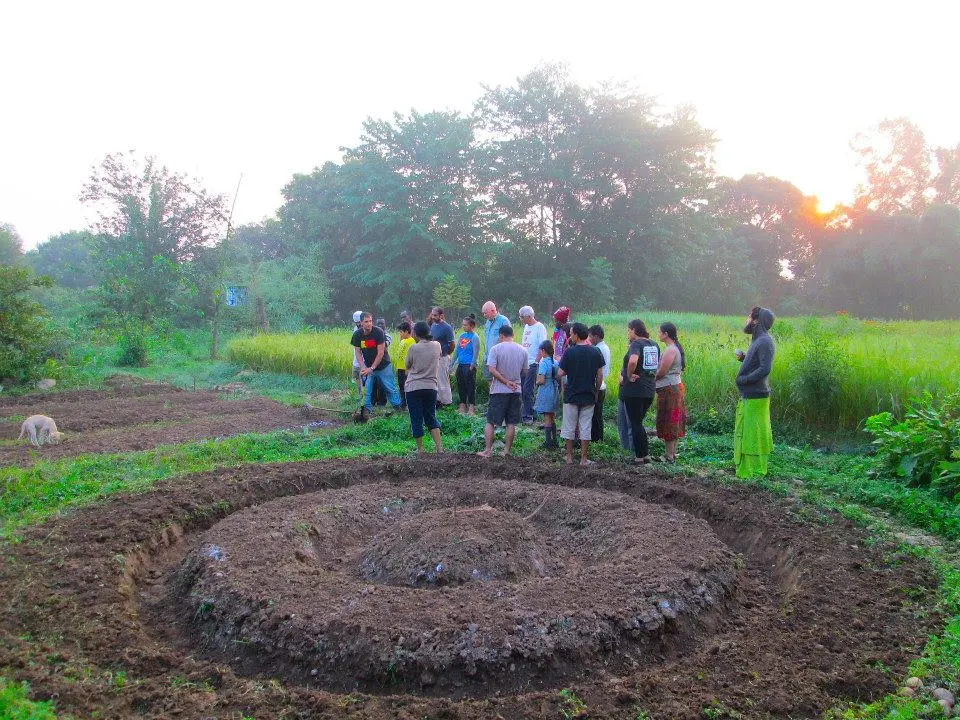
Earth University – Navdanya (Photo: The Hummingbird Project)
Ecosystems as Living, Evolving Entities
We recognize ecosystems as living, dynamic networks in constant evolution, where biodiversity plays a fundamental role in maintaining balance and resilience. The health of the soil, the diversity of seeds, and the interconnectedness of all living beings form the foundation of thriving communities. Instead of treating nature as a set of extractable resources, we embrace an approach that respects and nurtures these interwoven systems.
Understanding the vitality of ecosystems is essential to fostering agricultural and food systems that regenerate the land and provide nourishment without depleting natural resources.
Pedagogical approach
Our program’s participatory and experiential approach immerses students in hands-on, place-based learning. Each module integrates theoretical knowledge with practical experiences at local farms, fostering skills in critical thinking, observation, and sustainable practices. Place-based learning uses the local community and environment to teach concepts from subjects across the curriculum, including language arts, math, science, and social studies. Through place-based learning, learners engage in hands-on, real-world learning experiences that connect them to the people, places, cultures, and histories that make up their community. The neighborhood and community become the classroom, and community members are part of the learning community. Learners, in turn, develop a deeper sense of place by reconnecting with the places they know in a way that is real and meaningful.
Learning happens through:
- Hands-on Experience – Direct involvement in regenerative agriculture, conservation, and biodiversity protection.
- Interdisciplinary Knowledge – Bridging ecology, food sovereignty, and community resilience.
- Dialogue and Exchange – Engaging with farmers, activists, scientists, and local communities.
- Observation and Reflection – Encouraging critical thinking and ecological awareness.
Beneficiaries
This initiative is designed for students, educators, farmers, activists, and citizens seeking to deepen their ecological knowledge and engagement. Through our diverse learning pathways, we provide tools and opportunities for people of all backgrounds to reconnect with nature and participate in the transformation of food and farming systems.
Educational institutions, grassroots organizations, and community groups also benefit from our network, fostering collaborations that strengthen local and global movements for biodiversity, food sovereignty, and ecological justice.
Ongoing Programs
Navdanya International has already successfully launched several educational initiatives dedicated to youth, promoting the discovery of the interconnectedness of ecology, culture and community. Through an experiential and participatory approach, the projects implemented have encouraged young people to explore crucial issues such as biodiversity, water management and community resilience. The activities carried out, which integrate theory and practice, aim to raise awareness among the younger generation about the importance of protecting our planet, providing concrete tools to become protagonists of ecological and social change.
Among the main projects:
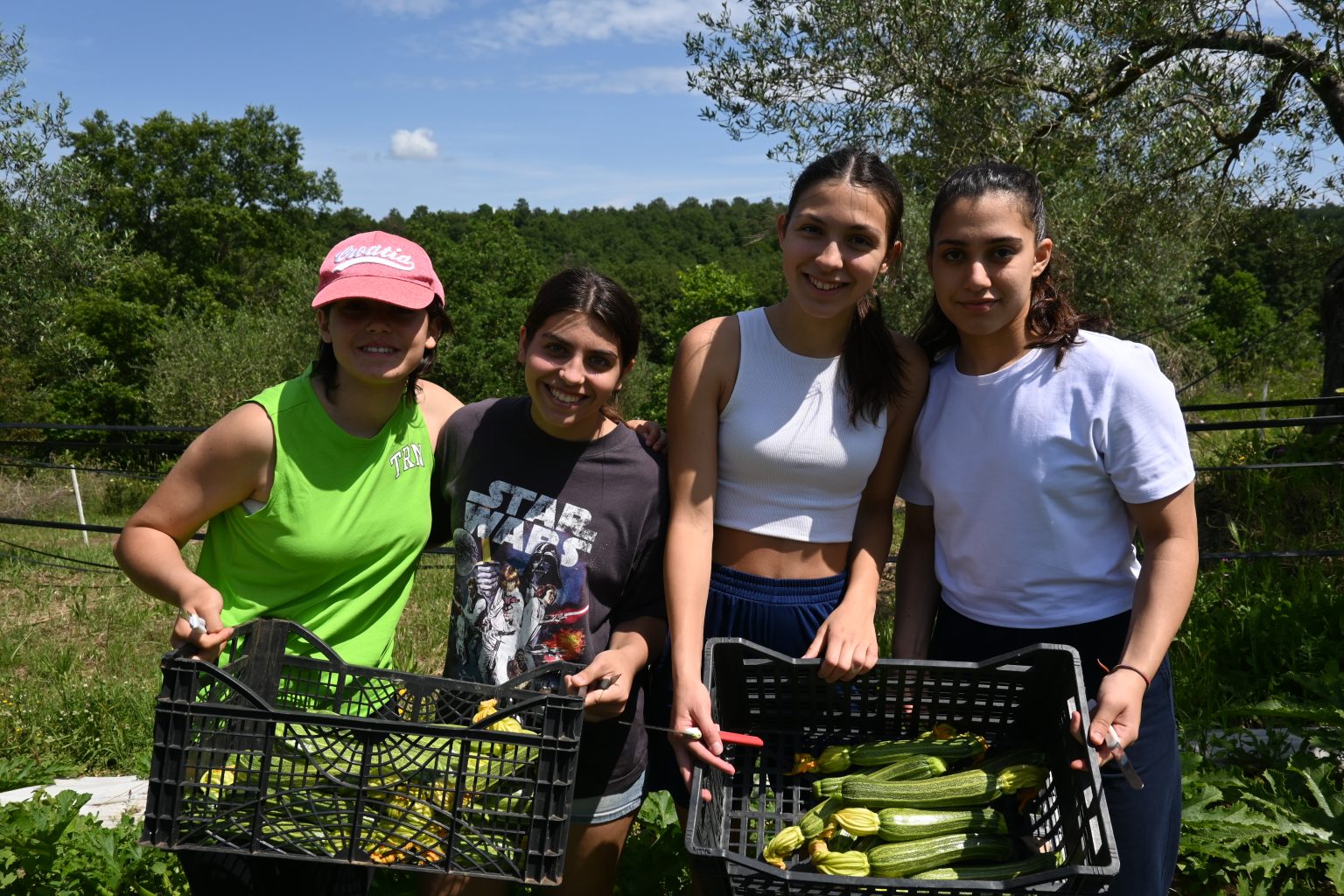
Terrae Vivae Ecological Education Program for TSOP Students
The Terrae Vivae Program offers high school students a unique opportunity to learn ecological and sustainable practices while actively participating in the creation of ecological communities. PCTO (Transversal Skills and Orientation Program) is an official, institutional program within Italy’s high school curriculum, where students select extracurricular activities aimed at developing transversal skills beyond the standard academic subjects. The Terrae Vivae program is one of these options, providing students with a hands-on experience in environmental sustainability. Focusing on both practical and theoretical training, the program fosters an understanding of the interconnections between soil health, biodiversity, and human well-being, offering a holistic approach to sustainability. Students participate in projects such as organic farming, permaculture, and responsible natural resource management, developing essential skills for a future in harmony with the Earth. Through field experiences, in collaboration with experts and activists, the program aims to raise awareness among young people about the need to transform lifestyles to ensure an ecological and resilient future. Project realized with the support of ‚Ecologia Unione Buddhista Italiana‘, the Ecology Program of the Italian Buddhist Union.

Agroecology is Life: Youth Discovering Local Food Systems
This project empowers youth to explore ecological food systems through hands-on experiences. Participants engage in visits to organic farms and workshops, learning about sustainable practices such as horticulture, cheesemaking, and the cultivation of ancient grains. By immersing themselves in these activities, young people develop a deeper understanding of biodiversity and its role in resilient food systems. The project fosters informed citizenship and encourages active participation in promoting ecological practices within local communities. Project in collaboration with ‚Ecologia Unione Buddhista Italiana‘, the Ecology Program of the Italian Buddhist Union, realized with the support of the Italian Buddhist Union’s 8×1000 funds.

Young Guardians of Biodiversity
This project empowers young people to become custodians of biodiversity and culture in their communities. Through participatory action research, youth develop the skills to document, protect, and promote traditional knowledge and practices related to biodiversity. By fostering ecological awareness and community resilience, the project encourages young people to take an active role in environmental stewardship. It supports the preservation of local ecosystems and promotes sustainable practices, ensuring a future where biodiversity thrives alongside human well-being. Project realized with the support of the Italian Hindu Union’s 8×1000 funds.
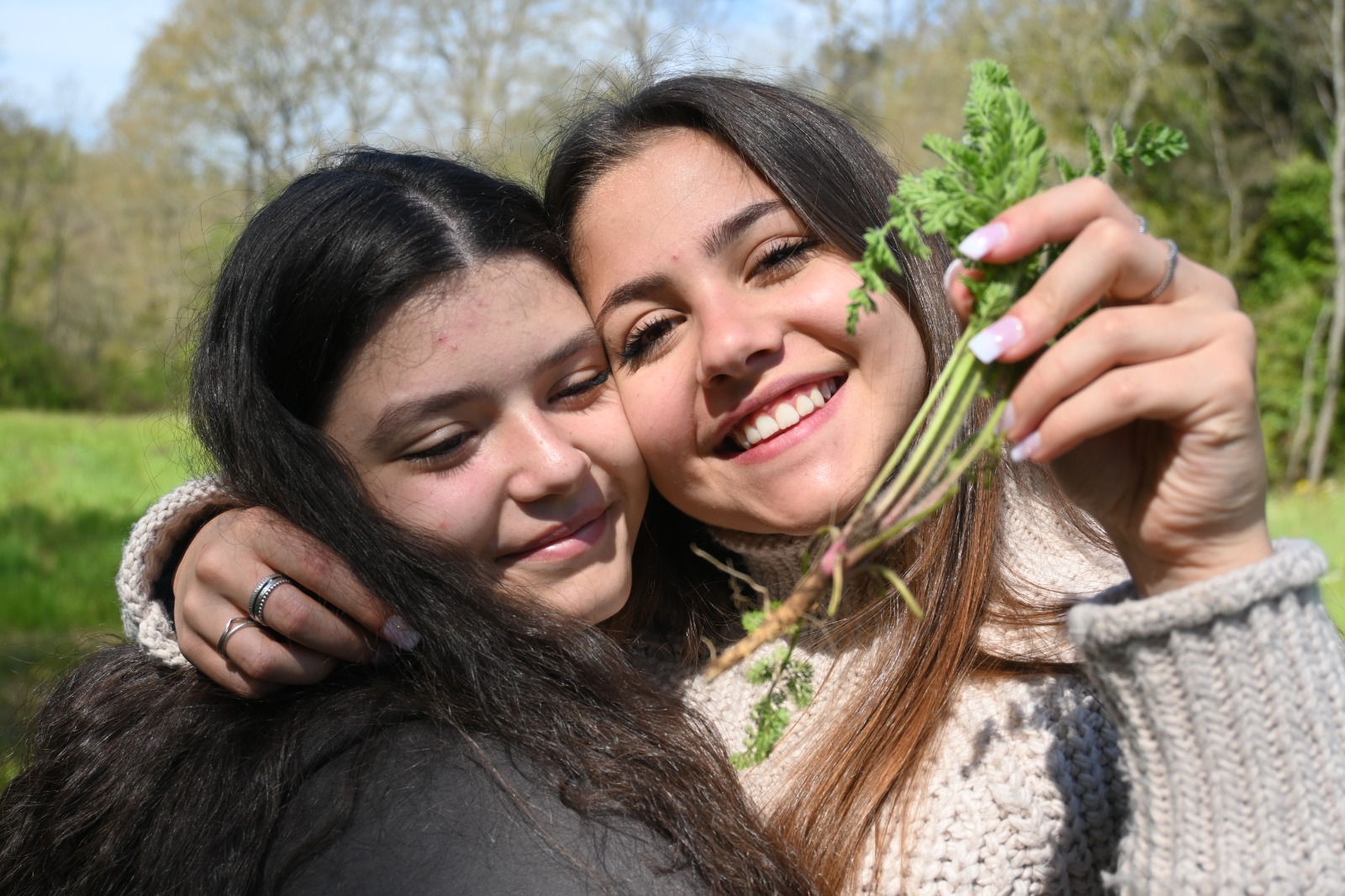
Biodiversity is Life: Let’s discover and protect it together
The project was an educational journey aimed at discovering the richness of local biodiversity and its fundamental role in the regeneration of territories. Through educational workshops and field activities, young people delved into the value of biological diversity and agroecological practices, understanding how to actively contribute to nature conservation. Project co-financed by the 8×1000 funds of the Italian Buddhist Union and the Waldensian Church.
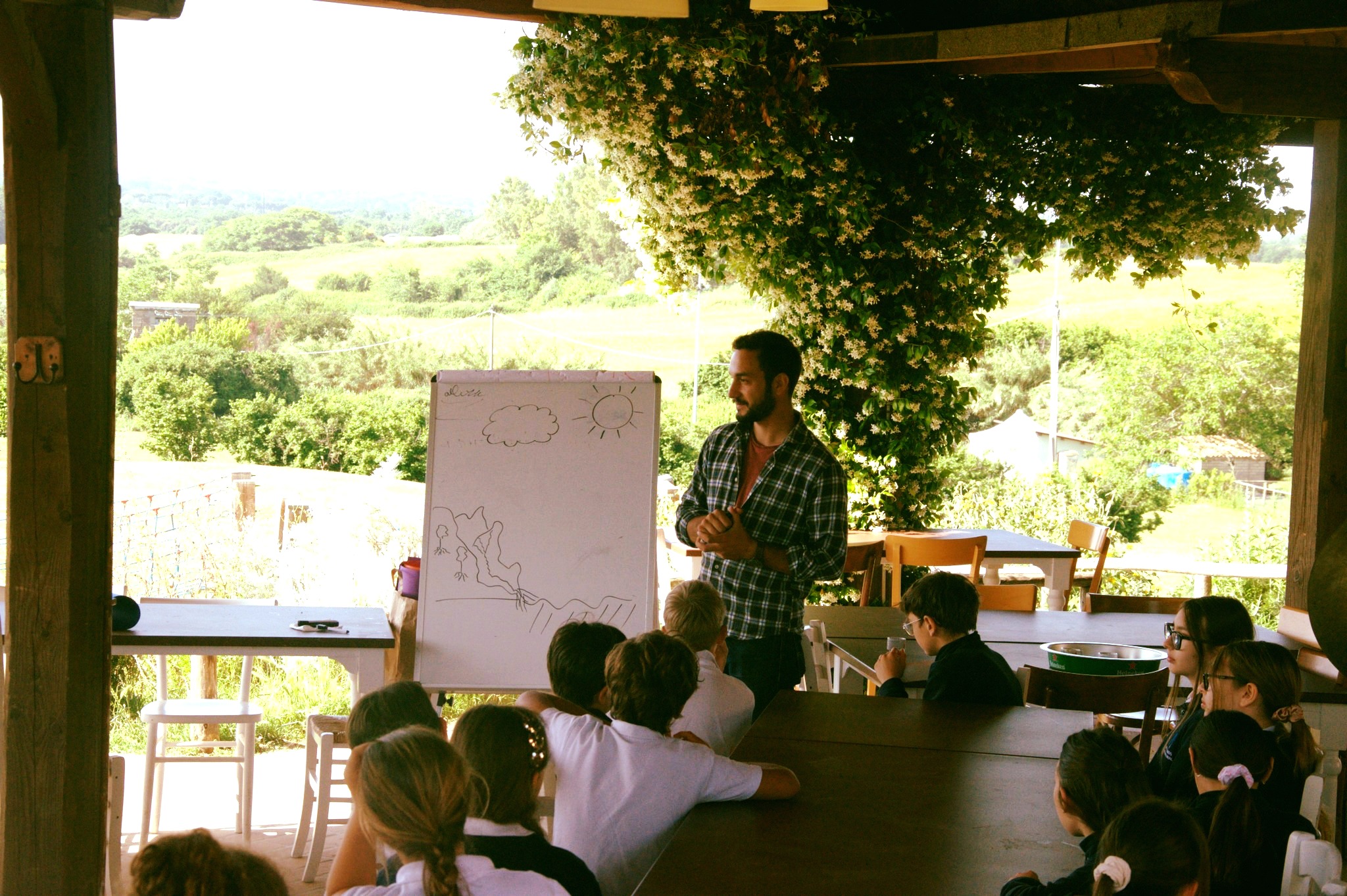
Water is Life
The project emphasized the importance of water as a common good and essential resource for life. Through educational activities and awareness-raising moments, youth explored issues related to water management and the challenges of the climate crisis, discovering sustainable solutions to preserve this vital resource. Project realized with 8×1000 funds of the the Waldensian Church.
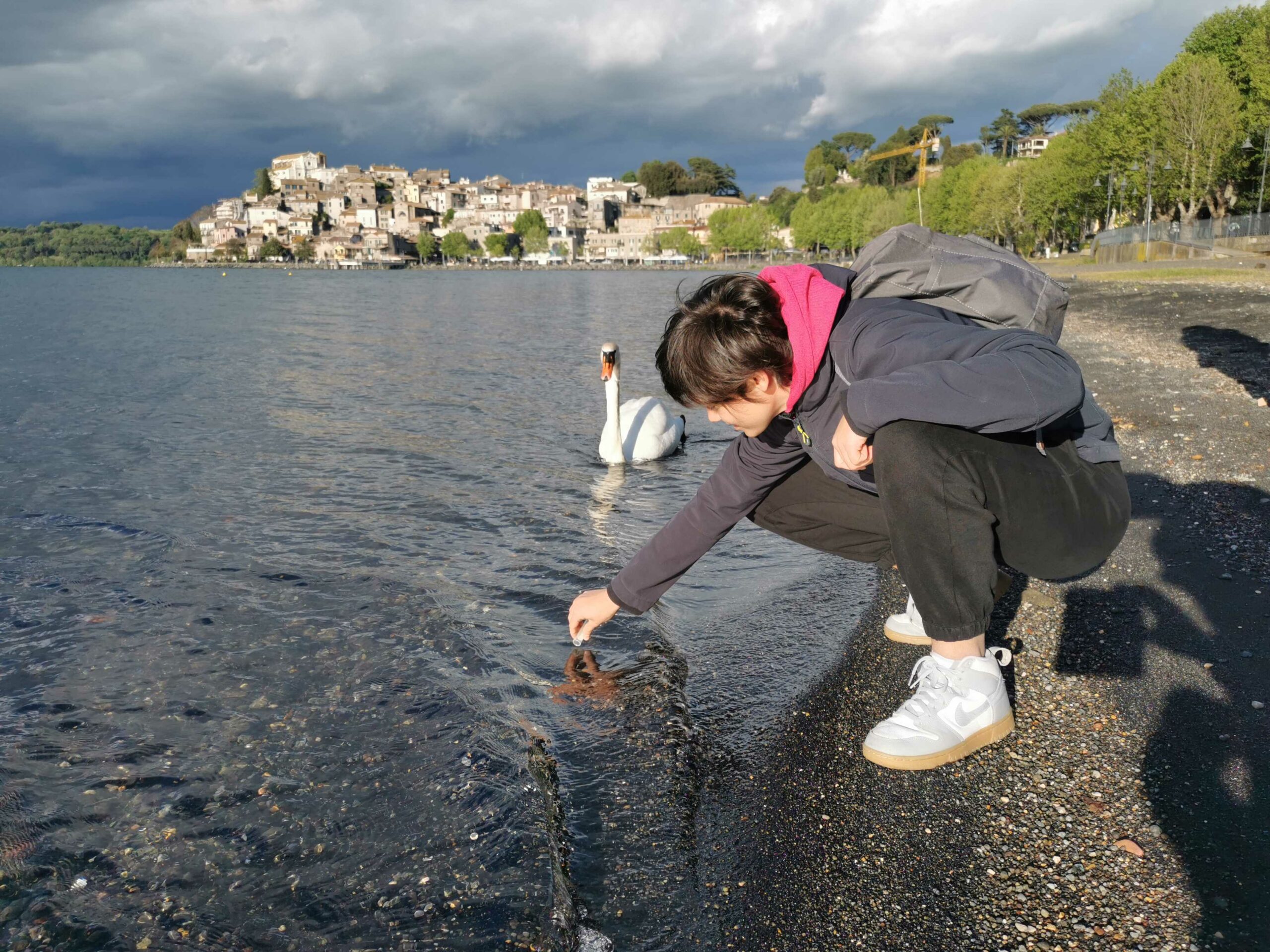
Blue Communities
Focused on the connection between local communities and water resources, the project encouraged young people to reflect on the link between territories and the water cycle. Through meetings with experts and hands-on activities, participants became more aware of community solutions for sustainable water management and protection of aquatic ecosystems. Funded by the Italian Agency for Development Cooperation, in collaboration with various partners led by CeVI – Centro di Volontariato Internazionale.
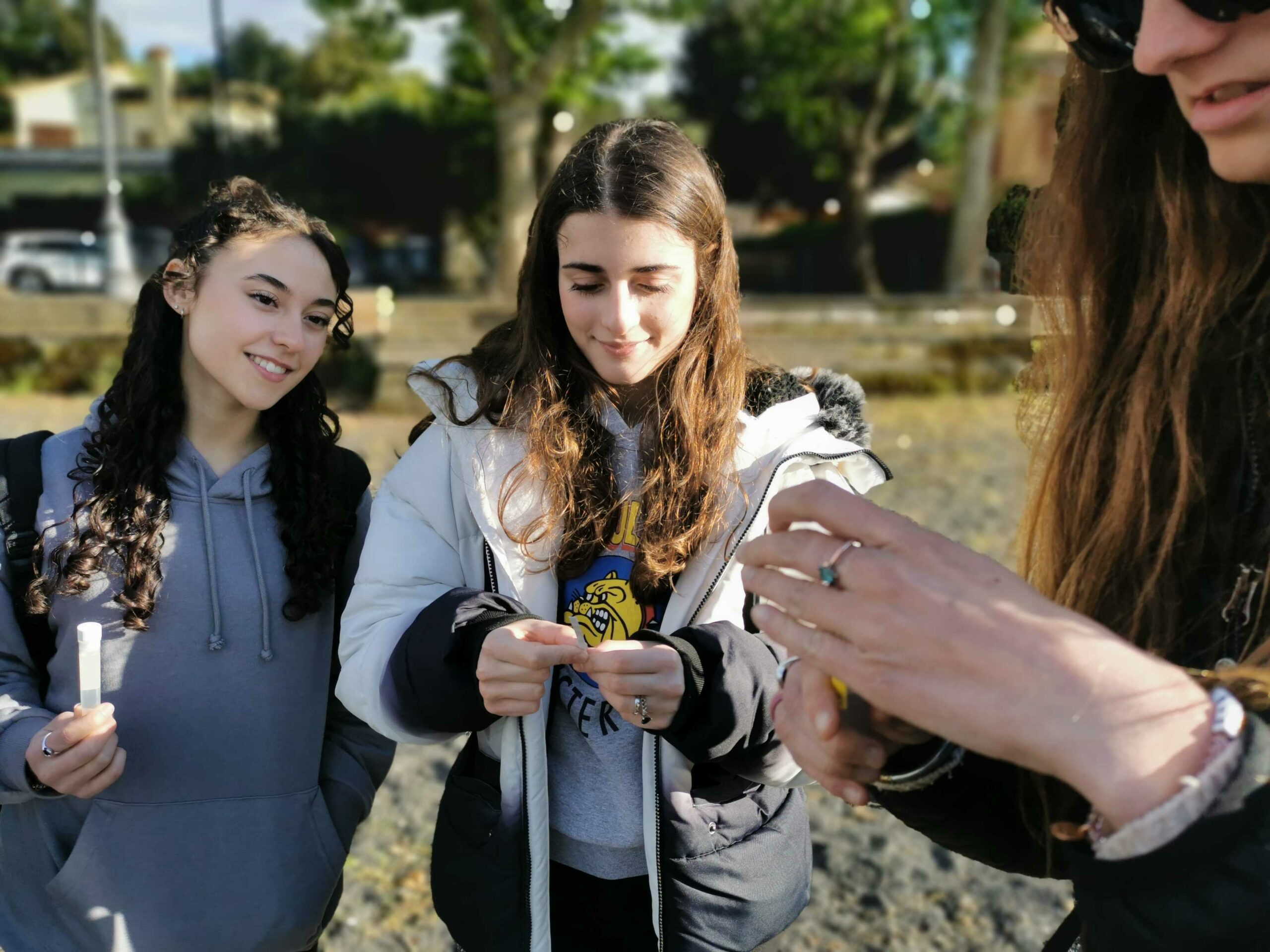
In line with this experience, Navdanya International’s educational programs continue to evolve and deepen the understanding of ecosystems and their inter-relationships. Through experiential journeys, we explore the value of soils, seeds, pollinators, agro-pastoral systems and wildlife, integrating social and cultural aspects that foster active and informed citizenship.
Educational Offering for Students
The educational program, in collaboration with local schools, addresses in its first phase those students adhering to specific school pathways for Transversal Skills and Orientation Programs (TSOP – PCTO). The program aims to cultivate ecological awareness and promotes the concept of Earth Democracy, a worldview based on mutual understanding and care for the earth and society.
Direct engagement of young people with the interconnectedness of humans and the natural environment within food systems highlights the essential role of individuals in their communities. It fosters a deep awareness of the relationships among all living beings and underscores universal rights concerning society and the environment, thereby laying the foundation for an equitable future for the next generation.
Program Goals
- Build Foundational Ecological Knowledge: Equip students with a comprehensive understanding of key ecological themes, such as soil health, seed diversity, sustainable food systems, water conservation, and forest stewardship.
- Promote Environmental Stewardship and Active Citizenship: Inspire students to take ownership of their local ecosystems and to actively participate in sustainable practices that contribute to the health and resilience of their communities.
- Develop Practical Skills in Conservation and Regenerative Practices: Through hands-on activities, workshops, and field visits, provide students with skills in conservation, regenerative agriculture, and resource management that can be applied in real-life settings.
- Foster a Sense of Place and Community Connection: Strengthen students’ connection to their local landscapes and cultures, encouraging an appreciation of traditional ecological knowledge and community-driven solutions.
- Encourage Reflection and Critical Thinking: Through reflective activities and discussions, encourage students to explore the global implications of local environmental issues and think critically about sustainable solutions.
Teaching Approach
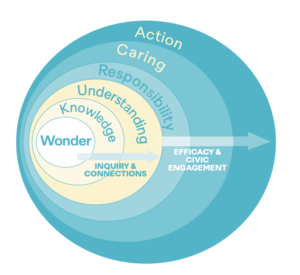
Our program’s participatory and experiential approach immerses students in hands-on, place-based learning. Each module integrates theoretical knowledge with practical experiences at local farms, fostering skills in critical thinking, observation, and sustainable practices. Place-based learning uses the local community and environment to teach concepts from subjects across the curriculum, including language arts, math, science, and social studies. Through place-based learning, learners engage in hands-on, real-world learning experiences that connect them to the people, places, cultures, and histories that make up their community. The neighborhood and community become the classroom, and community members are part of the learning community. Learners, in turn, develop a deeper sense of place by reconnecting with the places they know in a way that is real and meaningful.
Educational Offering – Program at a Glance
Modules cover the following topics:
- From seed to table: environmental sustainability and agroecology
- Impacts of industrial agriculture.
- Agroecological alternatives and educational tools for sustainable production.
- Climate change: the resilience needed
- Role of agriculture in climate change.
- Low-emission practices and mitigation strategies through food.
- Food for health.
- Risks associated with ultra-processed and industrial foods.
- How to build a healthy diet based on local foods.
- Water is life.
- Impacts of agriculture on water and strategies to protect water resources.
- Methods for sustainable water management.
- Biodiversity is life
- Threats to biodiversity and agroecological solutions.
- Regenerative agriculture models for ecosystem conservation.
- Regenerative agriculture and agropastoral systems.
- Benefits of regenerative grazing and animal welfare.
- Critical analysis of intensive farming and synthetic meat.
- Role and function of agroforestry systems.
- Integration of forests into agricultural systems to counter climate change.
- Agroforestry techniques and fire prevention.
- Agroecological cultivation and construction techniques.
- Mulching, raised gardens and food forestry.
- Soil regeneration and productive diversification.
Educational Offering for Teachers
Goals
The program is designed to promote the culture of sustainability in schools, addressing faculty by building on deep ecology and ecoliteracy to raise awareness of the importance of ecological practices and sustainable food choices among teachers and students. The program provides teachers with the tools to integrate sustainability into teaching, promoting conscious choices for a greener future.
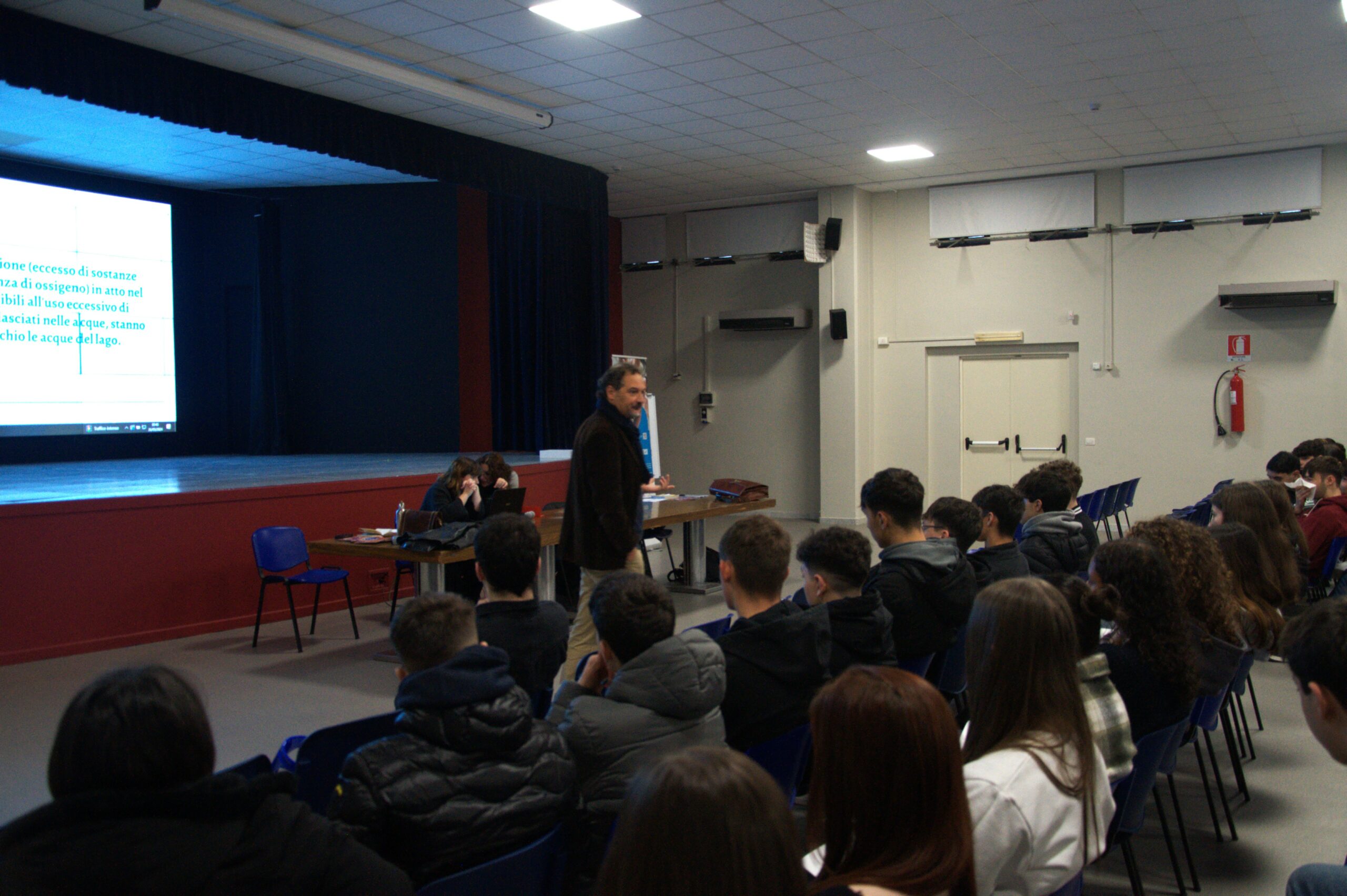
Educational Offering – Program at a Glance
The training modules for teachers cover the same topics addressed in the program for students, declined to support faculty in designing engaging educational activities targeted to the school context.
Central themes of the modules include:
- Environmental sustainability and agroecology.
- Climate change and food systems.
- Biodiversity conservation and water resources.
- Regenerative farming techniques and agroforestry systems.
- Food well-being and sustainable production models.
These topics are presented in a way that provides teachers with the necessary tools to raise student awareness and integrate sustainability into different school subjects.
Approach
The training is based on participatory methodologies, with a balance between theory and practice. Teachers directly experience the proposed activities, acquiring useful skills to develop interdisciplinary teaching paths that engage students and families in greater ecological awareness.
Modalities
The meetings, lasting about two hours, are held in schools or at local farms. The program includes hands-on workshops, theory sessions and guided tours, ensuring immersive and stimulating learning.
Educators
Modules will be led by Navdanya International experts, including agronomists, nutritionists, and local producers.
Activities
Main Activities include:
- Teacher training on sustainability and agroecology.
- Creation of school gardens.
- Visits to local farms with workshops on seedbeds, vegetable gardens, wild herbs, baking and cheese production.
Expected results
- Short term: increased awareness among teachers and students about sustainability and healthy diet.
- Long term: change in school eating habits, with canteens purchasing local food and healthier food choices on a personal level.
MATERIALS / RESOURCES
–
Publications
Biodiversity is Life: Graphic Novel
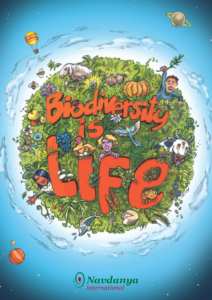
A graphic novel about the importance of biodiversity through an engaging, visual narrative. The book explores threats to biodiversity and solutions to protect our planet’s natural bounty, making ecological issues accessible to a younger audience and to anyone who wants an innovative approach to sustainability.
Biodiversity is Life – Illustrated Booklet

A publication that delves into the concept of biodiversity and its crucial role in the health of our planet. The text explores how the loss of biodiversity is threatening life on Earth and proposes solutions for a more sustainable and regenerative future, focusing on agroecological and community-based practices.
Regeneration is Life – Illustrated Booklet

This book focuses on the concept of ecological and social regeneration, exploring how agricultural systems and ecological practices can help regenerate damaged lands. It offers practical examples of how communities can adopt regenerative models to create a healthier and more resilient environment.
Biodiversity is not for Sale – Illustrated Booklet
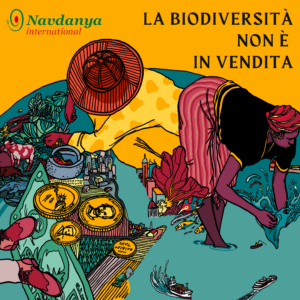
An illustrated book that addresses the issue of the commodification of biodiversity and natural resources. Through its visuals, the book raises readers‘ awareness about the need to protect biodiversity as a common good and to promote practices that respect and conserve the environment.
Articles
Biodiversity is Life: From local mobilisation to international action for ecological and social regeneration
This article explores the link between local mobilization and international action to defend biodiversity, highlighting the importance of a global approach to ecological and social regeneration. The challenges and opportunities associated with protecting ecosystems through collective action are analyzed.
Safeguarding Biodiversity for the Regeneration of the Land
An article that explores how biodiversity protection is a crucial factor in the regeneration of territories. Approaches and strategies that local communities can adopt to protect biodiversity are explored, contributing to ecological resilience and the well-being of future generations.

 Workshop: Regenerated Soil
Workshop: Regenerated Soil Date: May 8, 2025
Date: May 8, 2025 Time: 9:00 AM – 1:00 PM
Time: 9:00 AM – 1:00 PM Location: Faraoni Farm
Location: Faraoni Farm Description: Learning about regenerative agriculture and the role of agroecology.
Description: Learning about regenerative agriculture and the role of agroecology. Time: 09:00 – 13:00
Time: 09:00 – 13:00 Extracurricular Workshop: Biodiversity and Monocoltures – „Hazelnut Land“
Extracurricular Workshop: Biodiversity and Monocoltures – „Hazelnut Land“ Extracurricular Workshop: Introduction to Agroecology
Extracurricular Workshop: Introduction to Agroecology